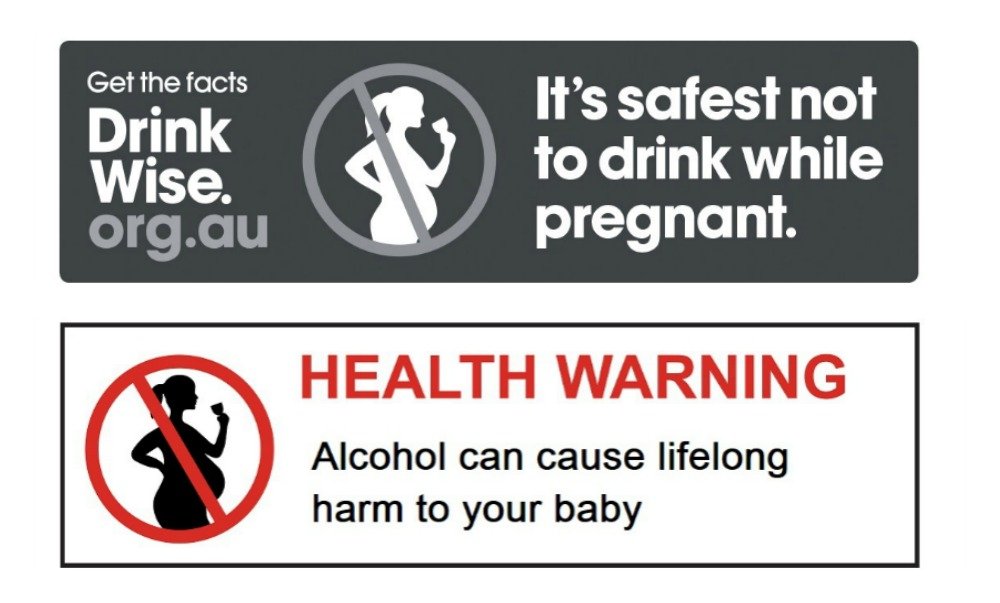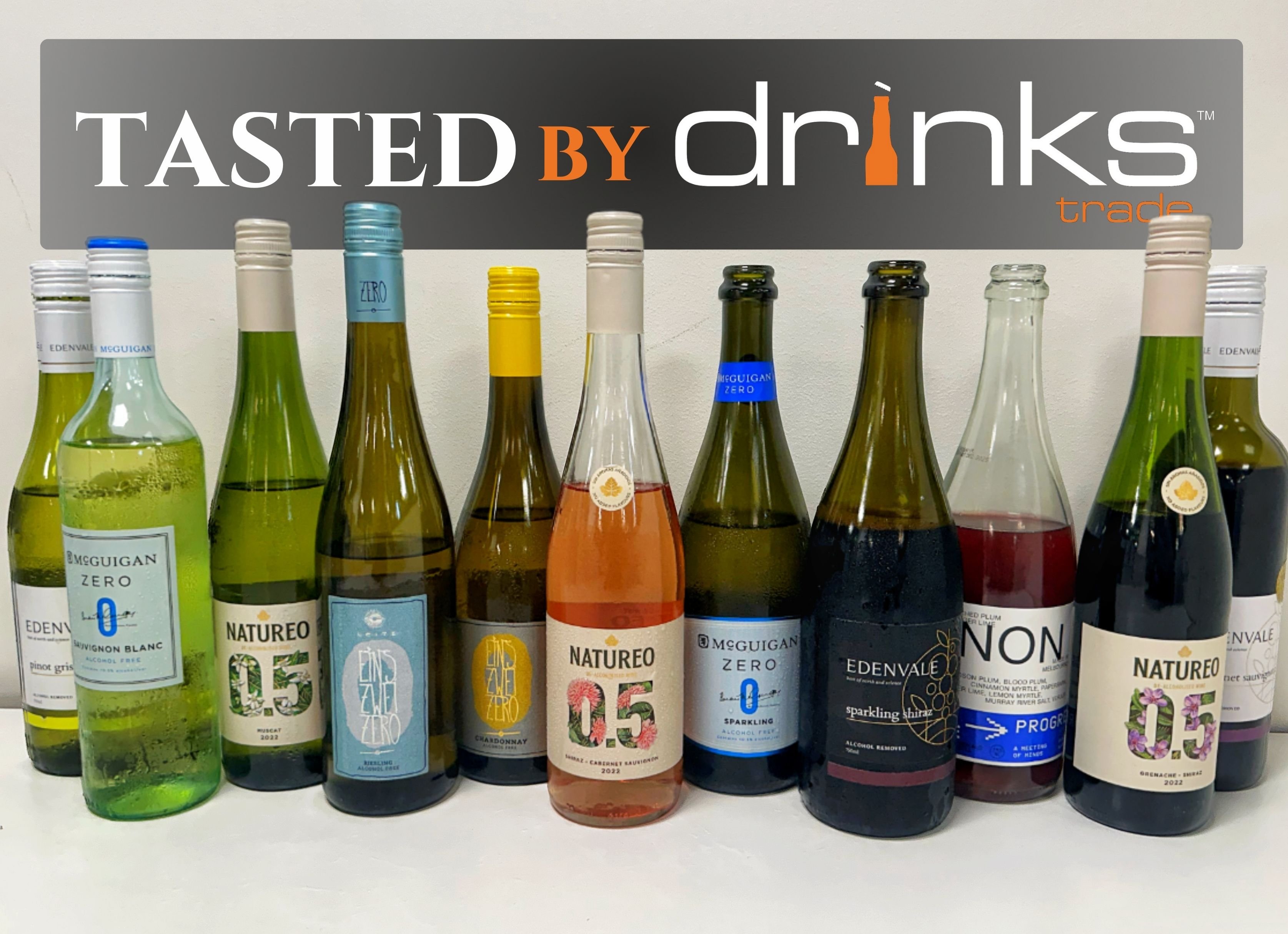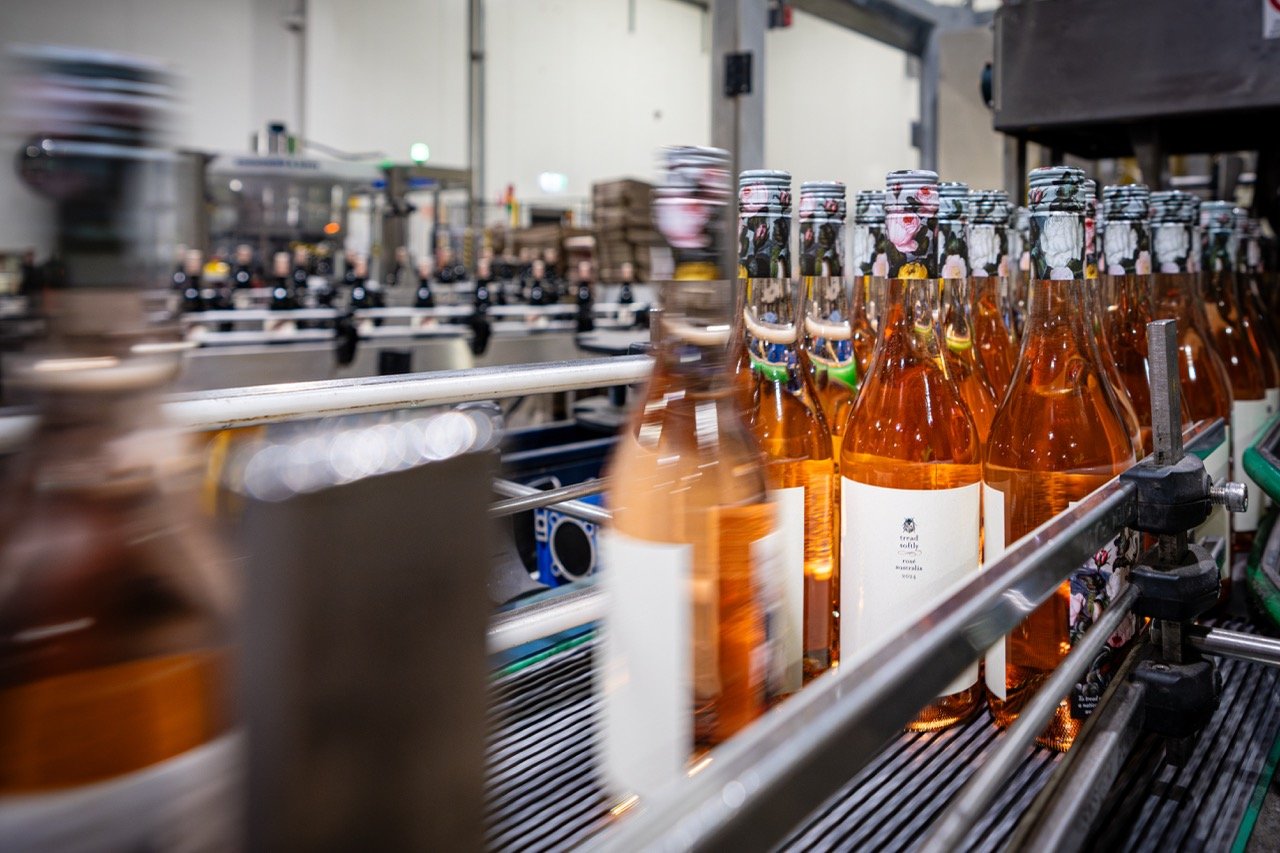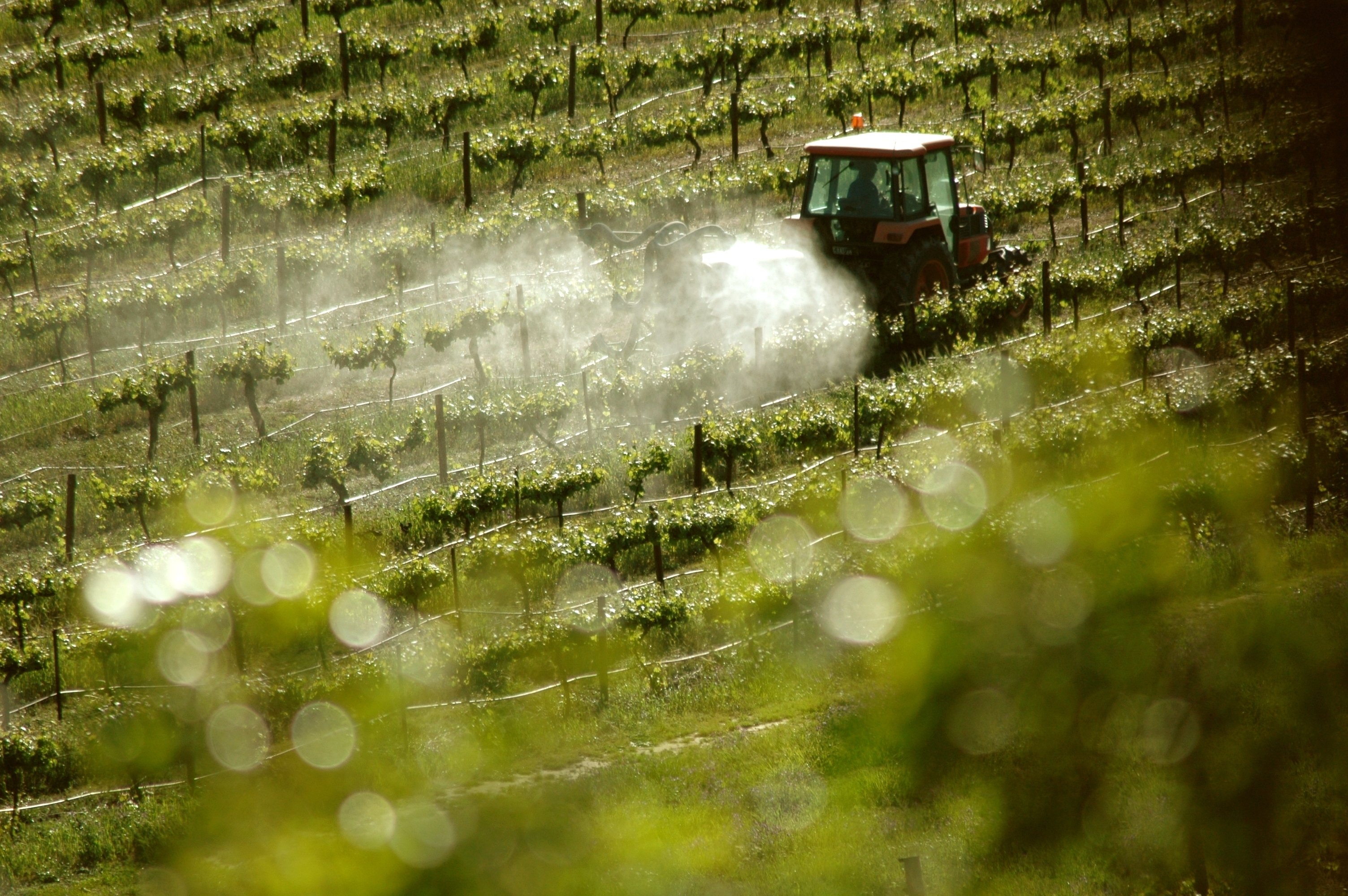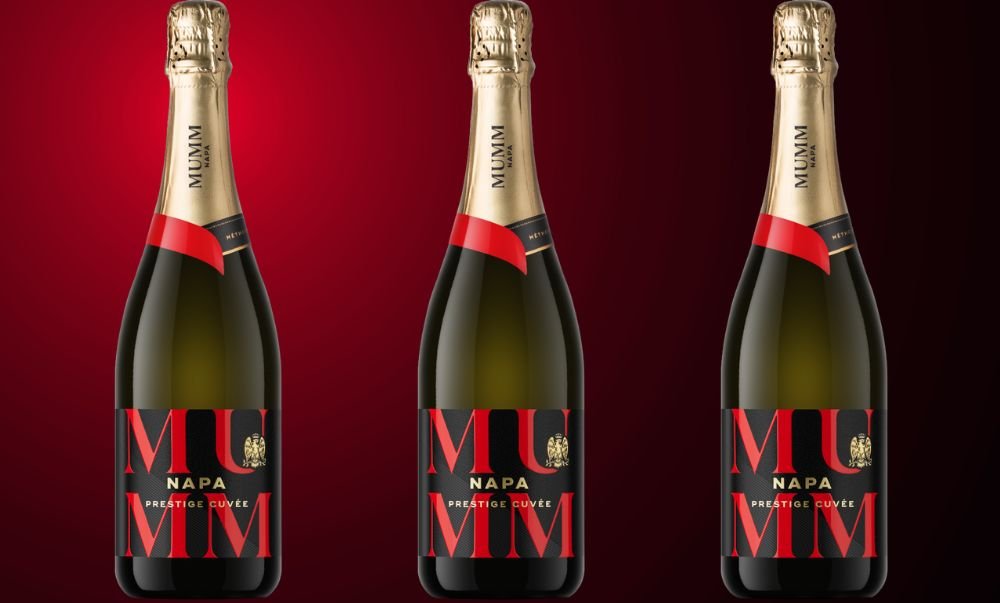Australian Grape & Wine has welcomed the decision taken by the Australian and New Zealand Ministerial Forum on Food Regulation to request a review of the proposed pregnancy warning label designed by Food Standards Australia-New Zealand (FSANZ).
The current voluntary label is shown above, top; while the proposed label is shown above, bottom.
The mandatory pregnancy warning label changes are regarded by the industry as being both excessive and expensive, as they include the expense of an extra colour to the printing process.
“Fetal Alcohol Spectrum Disorder (FASD) is an issue that we take very seriously. We have publicly supported the adoption of a mandatory pregnancy warning label throughout this process, and have joined the Australian Government in investing in the DrinkWise FASD Awareness program to help drive greater awareness and understanding of FASD,” said Tony Battaglene, Chief Executive of Australian Grape & Wine.
“However, the label designed by FSANZ was the worst possible outcome for wine businesses, and particularly those small family owned businesses that make up the majority of our sector.”
According to costs estimates put to Ministers by FSANZ in its approval report, the best case scenario would cost businesses $4924 per SKU (stock-keeping-unit, or label), while a 2008 Price Waterhouse Coopers Report for FSANZ identified an average cost of $9000 to $10,000 for a major label change. With most wine businesses offering multiple varieties and wine styles to their customers, the costs would have been immense, and small wine businesses would have been the hardest hit.
“We are relieved that Ministers have chosen to take a common sense approach and ensure the mandatory labelling scheme is effective and cost efficient. The 2500 small wine businesses across rural and regional Australia will breathe a sigh of relief at this pragmatic outcome,” said Battaglene.

The Australian grape and wine sector employs more than 160,000 people across rural and regional Australia, and contributes more than $45.5 billion to the Australian economy.
“Bushfires, smoke and now COVID-19 are putting unprecedented pressure on hundreds of Australian wine businesses, most of which are small and family owned. This week they’ve been looking at orders drying up, functions being cancelled and the prospect of nobody visiting their cellar doors for months.
“We believe a label design that does not mandate colours, and contains a more targeted headline message of 'Pregnancy Warning' will be effective and cost efficient. This would cut the cost of a label change by 30-50%, and provide a much clearer message consumers,” said Battaglene.
“Let’s get FSANZ to do this review quickly and let’s get on with the job of the industry working with the Australian and State and Territory Governments to reduce instances of FASD. We can do this by supporting an effective mandatory pregnancy warning label, and driving greater awareness and cultural change through investments in targeted education campaigns. DrinkWise’s FASD Awareness Program is doing just that, and we believe it serves as a template for future co-investments.”
Independent brewers welcome pregnancy warning label review
The review has also been welcomed by the Independent Brewers Association (IBA).
“Independent brewers have long been supporters of mandatory labelling, even introducing extensive guidelines for members," said Pete Philip, Chair of Independent Brewers Association.
"We only ask for a sensible approach that was proportionate to other mandated food warnings. We also ask they be cost-effective. The proposed changes are estimated to cost independent brewers more than $100million over a ten-year period.
“The estimated costs for printing, mandated use of red, updating bottle and can shots, digital collateral and everything else adds up to between $4166 to $16,500 per SKU. Yet, advice suggests that health warnings on alcohol does not lead to behavioural change.”
Philip added: “This would be a difficult cost for our industry to bear at the best of times. Contrary to some of the rhetoric out there, independent brewers and the industry are strong supporters of efforts to reduce fetal alcohol spectrum disorder. Most women are well-aware of the harmful effects of alcohol on pregnancy, so we simply ask for a common-sense response that is cost effective, particularly for small businesses.”
Share the content
